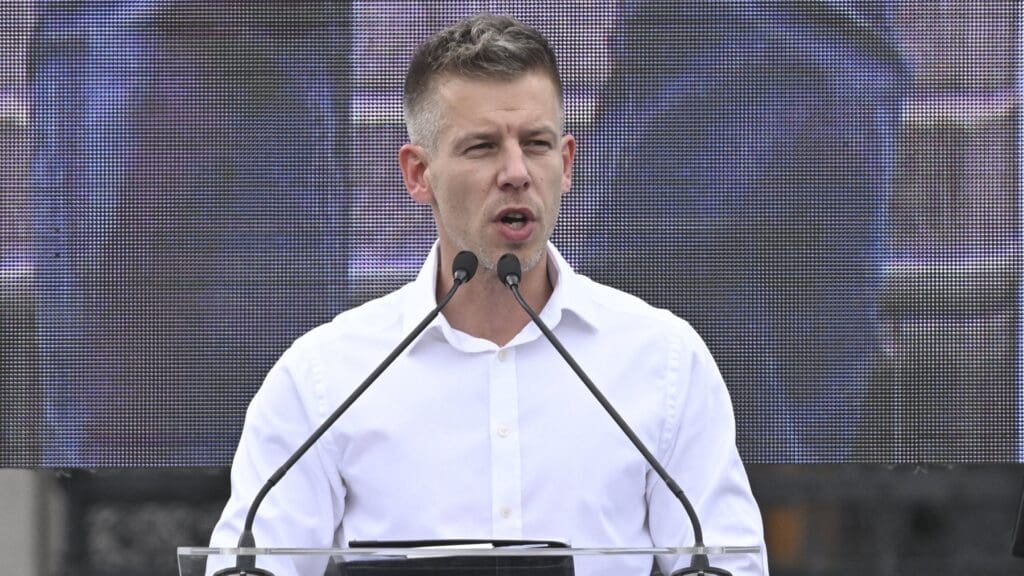During his visit to St Petersburg last week, Péter Szijjártó was interviewed by the Russian RBK television channel. In the discussion, the Hungarian Minister of Foreign Affairs and Trade stated that there is no alternative infrastructure capable of meeting Hungary’s fuel needs without relying on Russia.
‘If Hungary does not receive more oil from Russia, we will simply not survive; we will not be able to supply the country. Why? Because we don’t have an adequate alternative infrastructure. There is another pipeline that runs from Croatia, from the Adriatic coast to Hungary, but it does not have enough capacity to supply Hungary alone, let alone others. We also have to consider Slovakia, which relies on Hungary for its oil supply and simply has no alternative. And to some extent, the Czech Republic is in a similar situation,’ he underlined.
According to the Hungarian FM,
if Russian oil supplies were to cease, Hungary ‘would be completely deprived of oil.’
‘You just have to look at the numbers. We do not want to take such a risk. So the fact that Ukraine has made this decision presents a very serious challenge for us. It affects about one-third of our imports from Russia. In Slovakia, the situation is even worse, as these deliveries account for about 40 per cent,’ Szijjártó pointed out.
The interview was likely conducted around the time when Ukrainian presidential adviser Mykhailo Podolyak announced that the Druzhba oil pipeline, which transports Russian oil to Hungary, Slovakia, and the Czech Republic, would be shut down from 1 January 2025. However, within hours, Podolyak refuted his own statement, clarifying that Ukraine is committed to fulfilling its obligations regarding the transit of Russian oil as long as the relevant contracts remain in effect. He added that this would be managed based on bilateral agreements with European countries. The current contract between Russia and Ukraine is set to run until 2029.
Reacting to the news, Szijjártó stated in the interview that no official information had been received on the matter: ‘The official indications are completely contradictory. So far, we have received information from Kyiv through all official channels that Ukraine is fulfilling its contractual obligations and ensuring the transit of oil supplies to Hungary and Slovakia.’
However, there have been ongoing issues with the transit of Russian oil through Ukraine in addition to the potential closure of the Druzhba pipeline. In July, Kyiv decided to halt Russian Lukoil’s oil shipments to Hungary and Slovakia. This decision is in breach of the EU–Ukraine Association Agreement, which prompted Budapest and Bratislava to appeal to the European Commission. Despite this, Brussels sided with Ukraine, with the Commission concluding that the Ukrainian decision does not directly threaten the energy security of member states. At the time, Péter Szijjártó called Brussels’ position ‘outrageous’.
In the interview the Hungarian FM noted that negotiations are ongoing with Russian suppliers and Ukrainian transit companies. ‘Assessing the current situation, I can say that we are gradually approaching a long-term solution, but we are not there yet. The contracts have not been signed yet, but we are working very seriously on it,’ he emphasized.
Returning to the topic of Podolyak and the closure of the Druzhba pipeline, according to the Ukrainian news portal Strana, the Ukrainian advisor may have confused the expiry of the Druzhba oil pipeline contract with that of the gas transit contract in the above-quoted interview. The gas transit contract is set to expire in January 2025, and the Ukrainian Energy Minister confirmed back in March that there was no possibility of extending the Russian gas transit contracts.
The latter also impacts Hungary’s energy supply, but during his visit to St Petersburg, Péter Szijjártó reassured the Hungarian public that there is no immediate threat at present. Szijjártó met with CEO of Gazprom Alexey Miller last Friday, and after the meeting, he emphasized that along with the secure southern supply route via the Turkish Stream pipeline,
the long-term gas purchase agreement with Gazprom ensures that Hungary’s gas supply remain stable
despite the challenging geopolitical environment.
Szijjártó highlighted that last year, approximately 5.6 billion cubic metres of natural gas were delivered to Hungary through Turkish Stream, and this year, the figure has already reached 4.8 billion cubic metres. ‘Thanks to this, Hungary’s preparation for the upcoming months known as the heating season is very strong by European standards,’ he said, adding that Hungarian gas storage facilities are currently at 89 per cent of full capacity, compared to the European average of 27 per cent.
Related articles:








